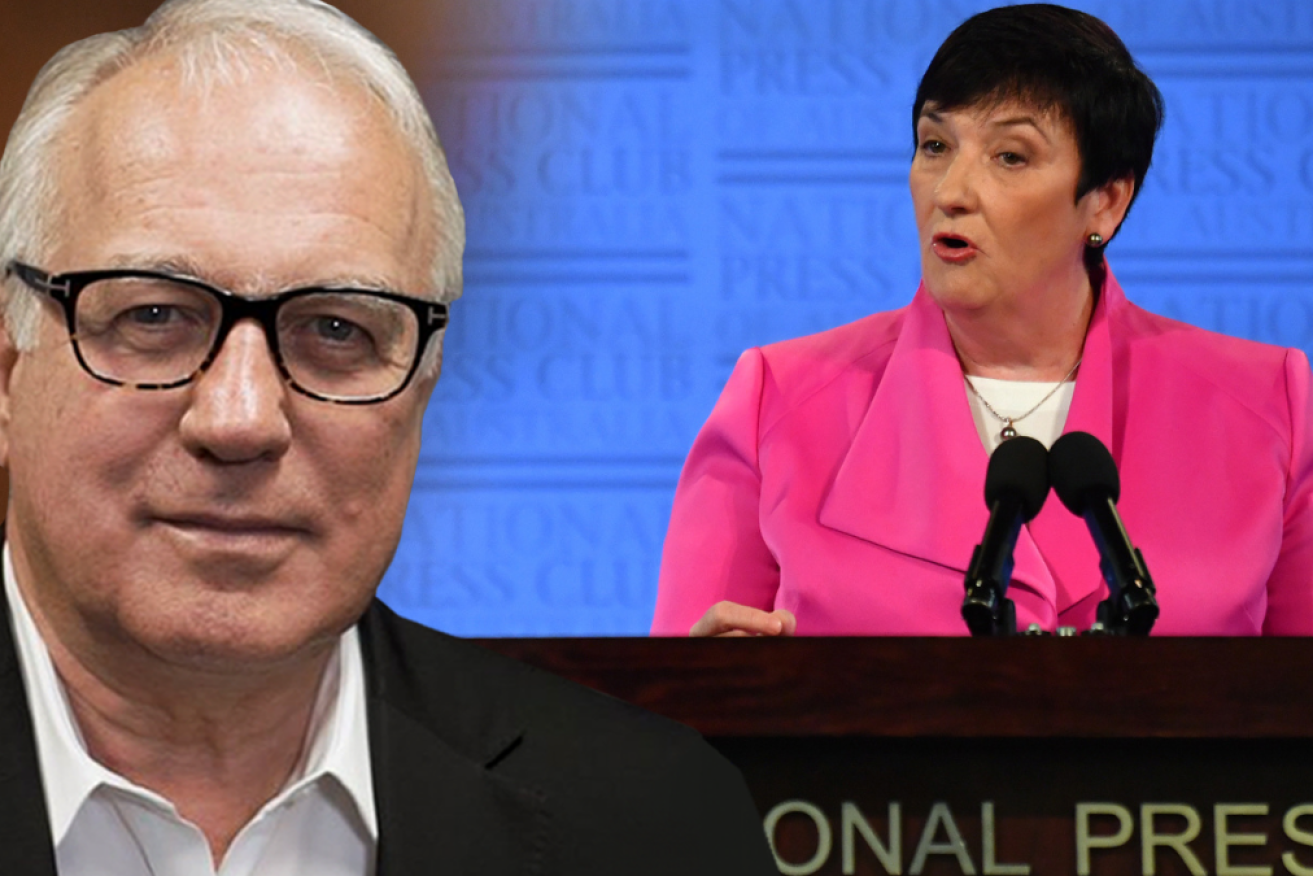Alan Kohler: Business lobby should lecture its members on productivity, not us


Australia's business lobby, led by Jennifer Westacott, should direct its lectures elsewhere, writes Alan Kohler. Photo: TND/AAP
The least surprising thing in the Business Council of Australia’s ‘Seize the Moment’ document this week was the call to cut company tax and increase the GST. At least it is consistent.
The BCA has a keen sense of irony too. In 1985 at Bob Hawke’s tax summit, the first chairman of the new Business Council of Australia, Westpac CEO Bob White, scuttled Paul Keating’s plan for a consumption tax with the words: “We are not on the government’s cart.”
Thirty eight years later, roles are reversed: The man who studied Paul Keating for his PhD, Treasurer Jim Chalmers, has scuttled the BCA’s plan for an increase in the consumption tax rate.
The new thing in the BCA’s latest lecture to the nation on productivity is its suggestion that there should be an industry policy.
On this subject Australia’s peak business group has always been more or less on the Productivity Commission’s cart, but now seems to have jumped off. The Productivity Commission has been a powerful opponent of industry subsidies since it was created in 1998, and big business has generally been on board as a matter of free-market ideology.
But now the blinding success of US President Joe Biden’s Inflation Reduction Act (IRA) has changed everything.
As I pointed out last week, the cash whooshing from government to business in the US as a result of the IRA was originally estimated at $US369 billion and is now up to $US1.2 trillion, and counting, because it’s uncapped and so many businesses want a piece of it.
The equivalent amount in Australia given the exchange rate and relative GDP would be well over $100 billion.
That’s about as likely as the GST rate of 20 per cent needed to fund it, but business lobbies the world over are now suddenly seeing the soundness of industry policies that involve government subsidies.
What business wants
The BCA wants “a reinvigorated and contemporary industry policy”.
Seizing the moment, it goes on: “Done in the right way, industry policy is an economic enabler. It helps the nation prepare, adapt and prosper in a rapidly changing world.”
Not that it’s looking for anything like the scale of America’s IRA – just a refocusing of the existing $15 billion National Reconstruction Fund.
Still the outgoing chairman of the Productivity Commission, Michael Brennan, pursed his lips (again) this week and warned against an industry policy that tries to pick winners.
It’s part of the broader, longer argument about the reasons for declining productivity growth, and what might be done about it.
Productivity growth was already well down in June 2012 when the then governor of the Reserve Bank, Glenn Stevens, famously said in answer to a question about what he thinks should be done: “I could give you a sort of waffly sermon on the various things.

Former RBA governor Glenn Stevens.
“But I think the best answer is: We have a body called the Productivity Commission … Gary’s here I think, somewhere … they’ve got a long list of things to do. My answer to what we can do about productivity is: Go get the list, and do them.”
Gary’s brutal list
“Gary” was the then Productivity Commission chairman Gary Banks, and he got around to publishing a productivity ‘to-do list’ five months later, with that quote from Glenn Stevens at the top of it.
It was a brutal list. Gary Banks started by declaring: “There are two crucial determinants of how much firms contribute to a country’s productivity performance: One is ‘innovation’, the other is what economists call ‘creative destruction’.”
There was no molly-coddling on that list, no sir, quite the opposite.
Instead, for example, there was: “Terminate selective industry subsidies that cannot deliver demonstrable net social benefits”; “Phase out public sector procurement preferences”; and “Conduct rigorous evaluations of all government innovation programs to verify that they are achieving ‘additionality’ and are cost effective”.
And, of course, “abolish all remaining tariffs” and “blockages to competition”, and toughen workplace laws.
The national policy debate about productivity boils down to carrot versus stick:
Industry policy advocates, now including the BCA, say: “Give businesses money and they’ll invest and do better” (the carrot);
The Productivity Commission says cut tariffs and increase competition and they’ll have to invest and do better to avoid being creatively destroyed (the stick).
But in my view, productivity is not a mystery requiring complicated policy reform, as economists and others paid to theorise about it keep telling us.
Two epic time wasters
It is simply a matter of business efficiency – that is, how much they invest back into the business instead of pulling money out as dividends and salaries, what they invest in and, most important of all, how they manage their staff. That’s it.
Labour productivity is measured as GDP per hours worked. On Sunday I had a piece on ABC news about productivity, in which I suggested, half tongue-in-cheek, that the problem is emails and meetings that waste so many hours.
The former head of communications at Commonwealth Bank, Kate Abrahams, has recently launched a start-up called Traffyk.ai that tells companies how much time and money they’re wasting on emails and meetings. She tells me clients are always horrified when they find out.
Pointless meetings are just a symptom of poor management, as is the more serious issue of falling real wages and workers not caring any more, as I argued here, and here.
That’s not to say there is no role at all for national policy in lifting productivity, but the BCA’s latest lecture to the nation would be better directed at its members than the rest of us.
Alan Kohler writes twice a week for The New Daily. He is finance presenter on ABC News and founder of Eureka Report








